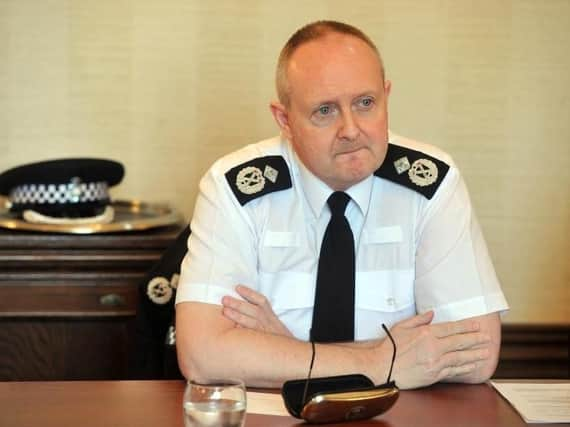Police forces can't continue to subsidise 'multi-billion pound football industry', police chief says


Deputy Chief Constable Mark Roberts, of South Yorkshire Police, said his force “can’t continue to subsidise clubs” by meeting so much of the cost of match-day policing.
The cost of policing football matches across Yorkshire was £2.35m for the first half of the 2017/18 season, figures obtained by the BBC Shared Data Unit reveal.
Advertisement
Hide AdAdvertisement
Hide AdWhile clubs met more than half of this cost, forces still faced a £1m shortfall.
Under the law, clubs only have to pay for match-day policing which takes place on their land, meaning forces which cover one or more major grounds have to meet the rest of the cost.
South Yorkshire Police funded £573,567 of the cost of policing Sheffield Wednesday, Sheffield United, Barnsley, Doncaster Rovers and Rotherham United matches for the first half of the season, the figures show.
Mr Roberts, who is the national lead for football policing, said: “I believe there needs to be a re-think about the funding of policing football matches, to reach a fairer balance between what police are able to recoup from a multi-billion pound football industry.
Advertisement
Hide AdAdvertisement
Hide Ad"Currently, clubs are paying what they are legally obliged to pay but this is, in my opinion, unfairly weighted. We can currently only recoup the costs of officers who are deployed within the club’s grounds, but the policing operation is significantly wider than that.
“Over the past year, policing football has cost South Yorkshire the equivalent of 27 full-time police officers, which would make a significant difference to our local communities.
“We can’t continue to subsidise clubs in this way, so without a change in the legislation we will need to work with the football industry to reduce the risks and in turn, the costs to police forces.”
The force said it had faced a net cost of more than £150,000 for just one match: this season's Sheffield Wednesday versus Sheffield United derby at Hillsborough.
Advertisement
Hide AdAdvertisement
Hide AdMr Roberts' comments were echoed by Mark Burns-Williamson, Police and Crime Commissioner for West Yorkshire, who said: “Whilst just over half of the cost of this policing has been recouped from the clubs this year, it does put an extra burden on resources at a time when Government cuts continue to take their toll.”
Data covering 1,187 of the 1,896 matches which took place in the Premier League and English Football League in the 2017-18 season show that matches cost police £6.6m and only £4.8m was recouped from clubs.
Dr Geoff Pearson, an expert in policing, crowd behaviour and sport within the School of Law at The University of Manchester, said: “A lot of forces are beginning to look into ‘can you police these matches with fewer officers?’
“It’s simply not sustainable to police games of football in this way [with high numbers of officers].
Advertisement
Hide AdAdvertisement
Hide Ad“Forces are trialling police liaison teams which talk to the crowd and feedback to the command team about the mood of the crowd.
“They are not intelligence gathering. They are there as an interpreter to police.
“They interpret what the crowd wants from the command team and facilitate that. They are aimed at preventing disorder and are an awful lot cheaper than vans full of riot police."
Amanda Jacks, of the Football Supporters’ Federation, said she believed there was a "risk-averse culture to policing football matches".
Advertisement
Hide AdAdvertisement
Hide AdShe said: "Whilst there might be an acknowledgement within certain forces, games are over-policed, it’s going to take a very brave match commander to stick their head above the parapet and reduce their police support units.
“Within crowds of thousands of people, there will only be a few individuals who pose a risk to safety but as soon as a police force puts a high risk category on a match, then lots of officers will be there."